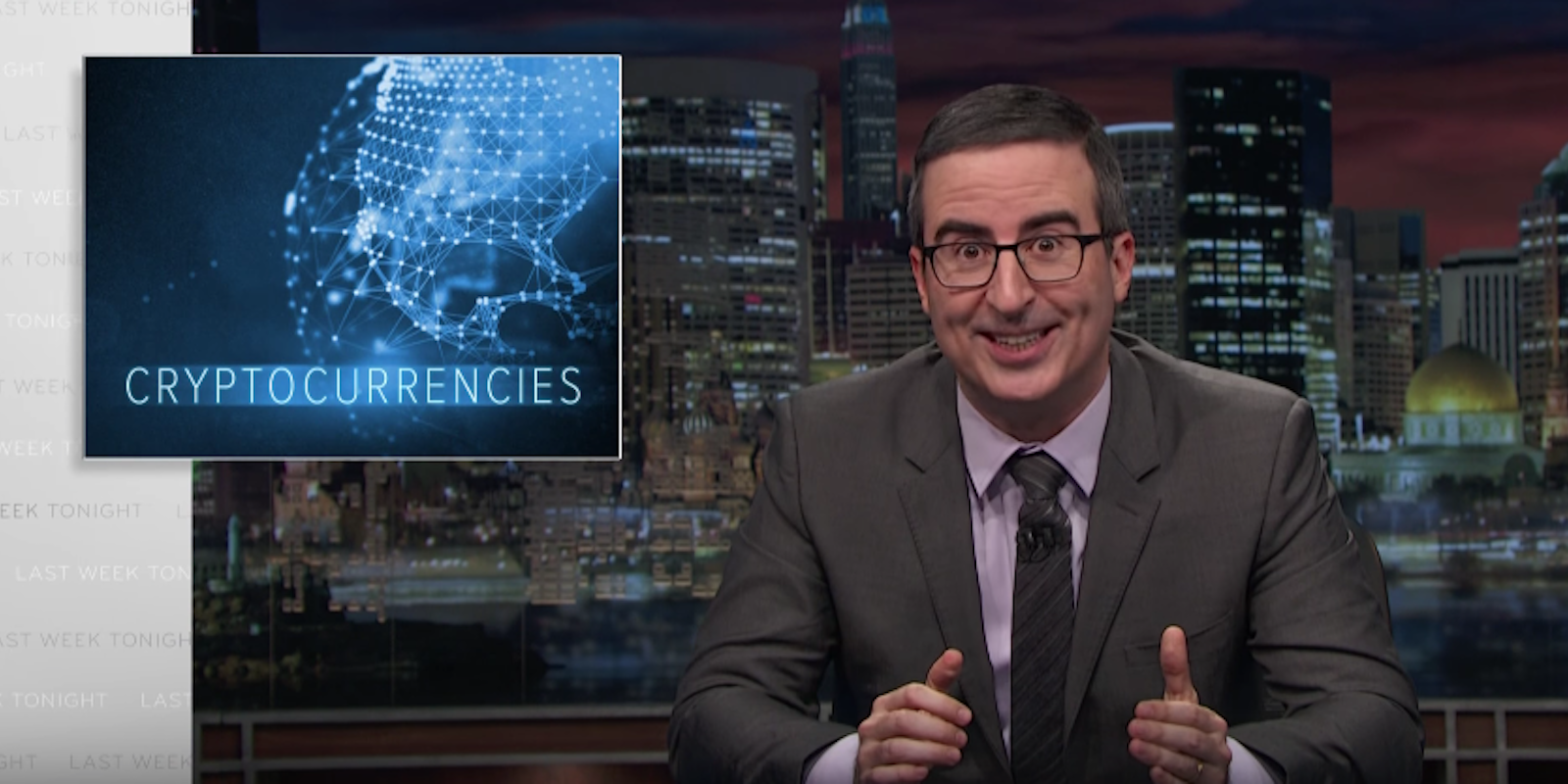If you’re aware of Bitcoin‘s transition from jokey internet currency to serious investment opportunity, but you’re a little foggy on how that actually happened, you’re not alone.
John Oliver dedicated Sunday’s episode of Last Week Tonight to explaining the still-evolving cryptocurrency economy, and why it’s suddenly gaining attention in the financial world. Cryptocurrency as an idea has been around for years. In 2012, Reddit users were paying each other to take off their clothes using Bitcoin, and in the time since, hundreds of new currencies have joined the marketplace. Some like Litecoin, Ethereum, and Ripple have made investors millions of dollars in recent months, while others like PotCoin and TrumpCoin mostly just exist for the funny names.
One analogy Oliver uses for explaining the cryptocurrency rush is the Beanie Baby fad. Just because someone posts a tie-dye Jerry Garcia bear for $15,000 doesn’t mean that’s what it’s worth. But someone looking to get in on a buzzy investment after they hear anecdotes about big payoffs might just fork over the $15,000 without realizing they’re going to have a hard time reselling it. More savvy cryptocurrency investors are using this pattern of behavior to their advantage, holding onto their coins as the market fluctuates and waiting until they can turn a profit before they sell.
Though we now have a cryptocurrency girl-group and a cryptocurrency rapper, it’s getting a little harder for Oliver to write the phenomenon off as a fad. The real product as far as Oliver’s concerned is blockchain—the digital record for cryptocurrency transactions that keeps track of exchanges chronologically and publicly:
Because these new currencies are documented through multi-source ledgers instead of banks (or any other single entity), they actually end up having the potential to be more secure than regular money—not that that’s why most people are cashing in right now. If it’s harder to get away with stealing someone’s identity using blockchain, then that could be one potential banking method of the future. Oliver still isn’t convinced Bitcoin won’t suffer the same fate as Google Glass, but his interest is piqued.


